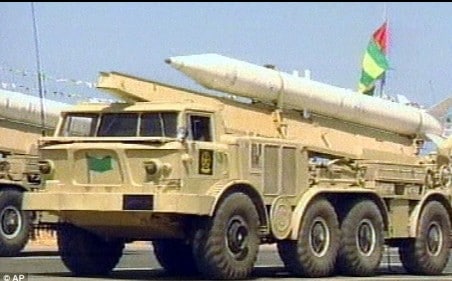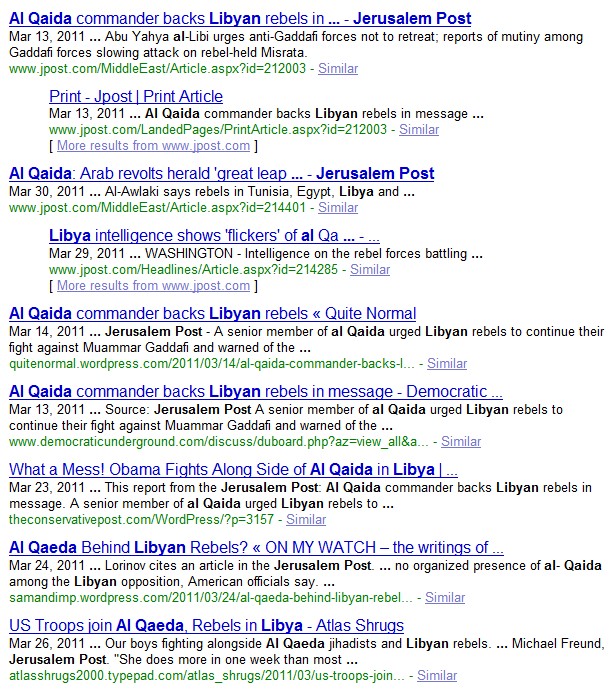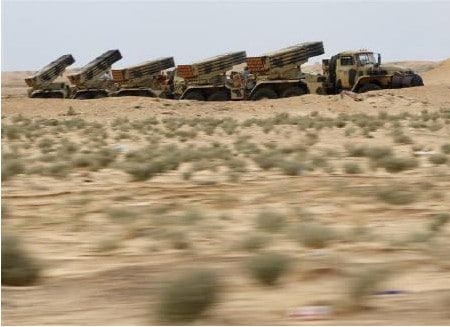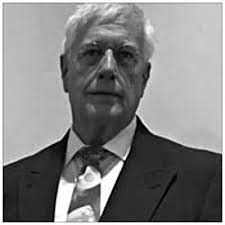

Press Flunks, Dishonest, Biased, Corrupt
“Reporting Worst Since Arnett in Baghdad”
By Gordon Duff – with the Editorial Staff of VT and Correspondents in Libya, with Gaddafi in Tripoli and with the Rebel Forces
“That is the fact that among his most ardent foreign supporters are Israel lobbyists and people from the most far-right wing of Zionism.” VT from Tripoli
“The war in Libya is often termed a “civil war”, but it is not. Civil wars pit two parts of the population against each other. But there is no discernible part of the population that supports Colonel Gaddafi actively, even in Tripoli. Where are the Gaddafi supporters? Where are their militias? The war is one of Gaddafi and his army against the people of Libya.” Ann Marlowe
VT is conspicuous for its predictions. The massive ACLU/Rosebrock lawsuit against Veterans Affairs is one. The Mossad and Wikileaks is another. Framing Dominique Strauss-Khan is one more. We caught the Israeli’s working with Mubarak during the uprising there and caught them again partnering with Gaddafi. We are consistently right because we are absolutely independent and unconstrained. We both support and denounce, criticize and debunk reports all the time.
We call it “journalism.”
When top VT journalists and editors travel, they themselves are more often the interviewed than the interviewer. Heads of state, intelligence agencies and military commands openly admit to reading VT daily. Some are being privately briefed, more than a few. They tell us there is no one else they can trust, this includes their own intelligence services.
ISRAEL SOURCE OF PRO-GADDAFI PROPAGANDA:

Libyan state television blares announcements, day and night, about NATO armies advancing on the city. This is from a VT source inside Tripoli tonight:
“It’s what I see on Libyan state TV every hour of every day. Of course, Gaddafi has some supporters, although these are miniscule in number. There are also “Revolutionary” Committees – some criminals, others careerists – and the tens of thousands of secret police. And there is the rent-a-mob. Plus people who know nothing about anything and are told that the crusaders are coming to force you to become Christians.
Also worth remembering that the practice of forcing “Revolutionary” Committee members to bring their family along or else be deemed traitorous is extremely common.”
Some time ago, we nailed top neocons in bed with Gaddafi, they and the Israeli lobby in the US were using their influence to oppose NATO intervention in Libya. Stories varied from saying rebels were Al Qaeda to claiming they all worked for the CIA. The first corrupt press lies, too often parroted by fools in the fringe press, were that the rebels

Now Tripoli is crawling with foreign correspondents and reporters being led around by the nose by Libyan secret police, being fed propaganda stories, given phony videos and some are being played, subsidized, even bribed. All are being discredited.
Technically, all should be required to register with the Department of Justice as foreign agents. We have read stories that are some of the worst ever, silly garbage about the heroic Libyan people digging trenches around Tripoli awaiting the non-existent NATO hordes.
Ann Morrow, who just returned from touring the rebel areas while other reporters are enjoying Gaddafi’s hospitality, gave this first hand report of the forces so many of our members of the press claim are vast NATO and CIA led armies:
“A tiny and frighteningly ill-equipped force”
Finally, the myths about the war: as I reported recently in the Wall Street Journal, the free Libyans in the field are a tiny and frighteningly ill-equipped force. In the Western mountains and near Misrata, the current front lines, the whole male military age population is mobilized, and the women provide food and treat the wounded. But the uniformed forces are very small – their deputy commander, an American-educated computer entrepreneur named Mustafa Sagezli, told me there is just a company in Misrata, a company in the Western Mountains and 1,200 men in the stalemated area between Adjabiya and Brega. (There is also one company in Jalou, near the oil fields, and three companies each in Tobruk, Benghazi and Kufra, in the deep south.)
We are doing next to nothing to help the free Libyan forces on the ground: no trainers, no non-lethal aid besides useless Meals-Ready-to-Eat (civil society groups feed the fighters), no weapons (Qatar has given assault rifles to the Libyan volunteers).
Who are these fighters? A broad range of Libyan men, from the poorly educated and unemployed to university graduates from rich families, men from Benghazi and men from Kufra, deep in the desert. I’ve met very religious volunteers and very secular ones. They are as diverse a lot, perhaps, as our own army – though there’s another mythology about that, of course. But enough for one day.”
Respected Libyan source commenting on Ann Marlowe:
“I don’t really care where Anne Marlowe is coming from. What does matter to me is the fact that her account is 100% consistent with my knowledge and understanding of Libya. So, I know that her observations on this occasion are correct.
I am somewhat amused by all Gaddafi’s parrots who are defending him to the last inch of the very little credibility they have even though they understand absolutely nothing about Libya, its people, its struggle for freedom and dignity, and its history.
And there’s one thing Gaddafi’s pimps and parrots consistently forget to mention. That is the fact that among his most ardent foreign supporters are Israel lobbyists and people from the most far-right wing of Zionism.
Very soon now Gaddafi will be no more. That’s when the time will come for his pimps to face the truth and be judged by the court of public opinion.”
From Sami Jadallah:
“Jim (Dean), greetings, glad that we have this debate, it speaks well of the site. However the likes of Cynthia and (name redacted out of courtesy), who gained their reputation fighting for the people are now scumming to the money and lies of killers and dictators like Gaddafi….” Sami
This Benghazi blast at a rebel camp, caused by an “unknown device” estimated at .1 kilotons let a “ground zero” area of scorched earth hundreds of meters across:
[youtube kcYZhndgqjo]
A reinforced Marine battalion could take out the Libyan army in 2 days. War plans indicate this and the option had been discussed many times. The only thing that kept Gaddafi from suffering this fate is his close friendship with the people he has always claimed to be his worst enemies.
The same politicians who got big envelopes from AIPAC in their campaign coffers, who were generously paid from narcotics profits from Afghanistan and Mexico also got “backhanders” from corporations Gaddafi has been putting together for his 42 year tenure as ruler of a brutal police state known to fund terrorist groups around the world.
This reality wasn’t accepted by all, not with many “big name” liberals running to Gaddafi’s side.
Our own staff was deeply divided on Libya and after a series of brutal exchanges, pretty much the “norm” at VT, began pulling in facts.
For those who care, this is what is true, what we learned from real sources on the front lines:
“Because the foreign reporters cannot leave the hotel without a secret police minder, they are in effect, and most of them unwittingly, acting as propaganda tools for the regime. (The Russians, especially the English-language RT channel, are knowingly acting as propaganda tools. The Russians see Gaddafi’s actions as echoing their own brutal behaviour in Chechnya and Dagestan; for that reason they are doing their utmost to provide propaganda support for the regime.)
For that reason, the pointless presence of foreign correspondents in Tripoli is resented by many people. This was made clear to me by all the Tripoli volunteers on the frontline when I was in Libya in April and May, and it’s also very clear from activist comments in the Libyan Arabic-language social media.It’s worth staying focused on one fact: while NATO mistakes may have led to the death of about 80 armed rebels and innocent civilians since March, over the same period Gaddafi’s thugs have killed between 18,000 and (according to Human Rights Watch) 30,000 civilians.
HRW was quoted by Al-Arabiya – can’t find a link to original HRW yes. But the US State Department has quoted a similar range of figures – see http://www.huffingtonpost.com/2011/04/27/libya-death-toll-could-be_n_854582.htmlThe figures are based on statistics compiled by Libyan hospitals in liberated areas. They exclude hospitals and clinics from west of Misrata to the Tunisian borders. They also exclude casualties brought into hospitals in Kufra and other places in the south. In these excluded areas (which are still under Gaddafi control), figures have been informally compiled by some doctors and passed on to the Interim National Council. Hence the very large discrepancy 18,000-30,000.”
300 killed – March estimate. (On 12 March, before phone comms with Benghazi were cut, a friend who is a doctor at the main hospital in Benghazi, told me that between 15 Feb and 12 March she counted 184 dead brought to her hospital alone, mostly killed by large calibre weapons and machetes – the African mercenaries’ favourite weapon. If that’s the dead brought to one hospital alone in four weeks of uprising, then god knows how many were killed during that time in the whole country.)
[Q from VT] Did they [the rebels] really make the offer to Israel we saw or is that total bullxxxx?
[A] NO, ABSOLUTELY, CATEGORICALLY NO. BUT GADDAFI’S SON, SAID AL-ISLAM, HAS GOOD CONTACTS WITH ISRAEL. THERE IS SUBSTANTIAL EVIDENCE TO SHOW THAT IN MARCH AND APRIL, BEFORE NATO TIGHTENED THE NAVAL BLOCKADE, TWO ISRAELI-LEASED CHINESE TANKERS DOCKED IN ZAWIYA, WEST OF TRIPOLI, AND LOADED WITH OIL FROM GADDAFI.
ACCORDING TO MY xxxxxxxxx, WHO IS A NAVAL OFFICER, SEVERAL OF HIS COLLEAGUES HAVE GIVEN EVIDENCE UNDER OATH TO THAT EFFECT. THE ISRAELI OPERATION WAS SAID TO BE IN RESPONSE TO A PLEA FROM SAIF AL-ISLAM BUT WAS DISCONTINUED WHEN GADDAFI WHEN THE REBELS FOUND OUT ABOUT IT.
[Q from VT] Do the rebels have a governing council?
[A] YES, THE INTERIM NATIONAL COUNCIL – http://www.ntclibya.org/english/[Q from VT] Do they have plans for a constitution?
[A] YES, WHEN GADDAFI FINALLY GOES, THEY WILL HOLD ELECTIONS FOR A CONSTITUENT ASSEMBLY WHOSE SOLE PURPOSE WILL BE TO DRAW UP A CONSTITUTION. AFTER A CONSTITUTION IS DRAWN UP, IT WILL BE PUT TO A NATIONAL REFERENDUM. IF APPROVED, THERE WILL THEN BE ELECTIONS OF HEAD OF STATE AND A PARLIAMENT. IF NOT APPROVED, THEN THERE WILL BE ELECTIONS FOR A NEW CONSTITUENT ASSEMBLY AND IT’S BACK TO THE DRAWING BOARD FOR A NEW CONSTITUTION.[Q from VT] We know the French are arming the rebels.
[A] THAT’S CORRECT. SO IS QATAR, UAE, TUNISIA AND EGYPT
—————————————
Dispelling Libyan myths
By Anne Marlowe
2 July 2011
Anne Marlowe debunks some of the common myths about the Libyan uprising prevalent among certain quarters in the West, from the myth that Libya is tribal, to the nonsense about the uprising being a “civil war”, to misinformation about the governance and forces of the anti-Gaddafi opposition.
In the two weeks since I returned from Free Libya, I’ve been amazed at how many people I talk to repeat the same misapprehensions about the country, the revolution and what the US is doing there.
I hear that Libya is “tribal”, that what is going on is a “civil war”, that we “don’t know anything” about the people currently governing eastern Libya. The average person I have talked to thinks that the free Libyan forces are either a bunch of Al-Qaeda or Islamists at best, or savage tribesmen. And everyone believes we are involved in training and supplying the free Libyan forces, with a fair number of people somehow having got the notion that we have special forces working on the ground.
“Tribes … serve a social function and adjudicate land issues in rural areas. But they no more have militias than, say, an American country club does.”
So, a quick clarification is in order.
An urban society
Libya is probably less “tribal” than Italy is regional. It is a much more urban society than most Americans suspect, which has been part of the problem of the free forces: Benghazi kids are less likely to have camping, hiking or hunting experience even than New York kids.
I saw only one outdoor goods store in Benghazi, a city of 800,000, and (a bit incongruously) one scuba equipment store. It is also a geographically dispersed society. There have been large movements of Libyans from one part of the country to another in the last 40 years, both for employment and for education (the Free Libyan capital, Benghazi, has the country’s oldest, biggest and most prestigious university).
I met dozens of people in eastern Libya who had close relatives in Tripoli or Misrata or both. I didn’t meet anyone with relatives in the Nafusa Mountains, which seems more self-contained, like our Appalachia. Tribes, I’ve been told, serve a social function and adjudicate land issues in rural areas. But they no more have militias than, say, an American country club does.
Gaddafi versus the people
The war in Libya is often termed a “civil war”, but it is not. Civil wars pit two parts of the population against each other. But there is no discernible part of the population that supports Colonel Gaddafi actively, even in Tripoli. Where are the Gaddafi supporters? Where are their militias? The war is one of Gaddafi and his army against the people of Libya.
“The war in Libya is often termed a ‘civil war’, but it is not. Civil wars pit two parts of the population against each other. But there is no discernable part of the population that supports Colonel Gaddafi actively, even in Tripoli.”
True, about 30 per cent of the population was at one time enrolled in Al-Lijan al-Thawriyyah, or “Revolutionary Committees”. These were part neighbourhood watch organizations, part death squads. Some joined to advance their careers, some due to blood ties to important Gaddafi regime figures, some out of conviction or bloodthirstiness. (There are certainly criminals and twisted souls in Libya, as anywhere else.) There will be big issues in re-integrating the true believers in Tripoli – but if they are numerous, they are certainly keeping a low profile now.
A word about Gaddafi’s army. From what I understand, Gaddafi dismantled the Libyan army that he inherited in 1969 when he took power. He threw officers of field grade or higher in jail if they were suspected of being loyal to the deposed king, or tossed them out. He installed his own army buddies in high positions. And in recent years, Gaddafi’s ambassadors to Niger and Mali are said to have offered Libyan passports to men willing to enlist in the army. They are not quite mercenaries, but they are not Libyans with roots in the country, either.
Interim National Council
What about the Libyan Interim National Council? (INC) Its members are definitely inexperienced, often bureaucratic – there are a lot of lawyers on it – but neither mysterious nor Islamist. I have heard criticisms of the council, and some are credible. The most grave is that they are not taking the management of the war seriously enough, that when asked to supply the free forces with one thing or another, they say something like, “We will study it.” (More on this later.)
Another complaint against the council, which will need more attention once Gaddafi goes, is a lukewarm commitment to women’s participation in governance. Libya has no tradition of this – there were no women in its very short-lived 1950s parliament – though Gaddafi did succeed in getting women equal pay for equal work. There are only two or three women on the 40-member body, and only one on the new 16-member Executive Office.
But it is worth noting that it is not clear that the INC will in fact be the governing body of a free Libya, once Tripoli falls. There is a much larger group in eastern Libya called the “Committee to Protect the Revolution of 17 February”, and it might evolve into a governing group. Many people ask why the free parts of Libya don’t hold elections. The answer is invariably that doing so would constitute a de facto splitting of the country.
“A tiny and frighteningly ill-equipped force”
Finally, the myths about the war: as I reported recently in the Wall Street Journal, the free Libyans in the field are a tiny and frighteningly ill-equipped force. In the Western mountains and near Misrata, the current front lines, the whole male military age population is mobilized, and the women provide food and treat the wounded. But the uniformed forces are very small – their deputy commander, an American-educated computer entrepreneur named Mustafa Sagezli, told me there is just a company in Misrata, a company in the Western Mountains and 1,200 men in the stalemated area between Adjabiya and Brega. (There is also one company in Jalou, near the oil fields, and three companies each in Tobruk, Benghazi and Kufra, in the deep south.)
We are doing next to nothing to help the free Libyan forces on the ground: no trainers, no non-lethal aid besides useless Meals-Ready-to-Eat (civil society groups feed the fighters), no weapons (Qatar has given assault rifles to the Libyan volunteers).
Who are these fighters? A broad range of Libyan men, from the poorly educated and unemployed to university graduates from rich families, men from Benghazi and men from Kufra, deep in the desert. I’ve met very religious volunteers and very secular ones. They are as diverse a lot, perhaps, as our own army – though there’s another mythology about that, of course. But enough for one day.
Anne Marlowe is a New York-based writer and visiting fellow at the Hudson Institute in Washington. She publishes frequently on Afghanistan’s politics, economy, culture and the US military intervention there.
A version of this article was originally published in World Affairs.
[youtube c9N5NcBIbnk]

Gordon Duff posted articles on VT from 2008 to 2022. He is a Marine combat veteran of the Vietnam War. A disabled veteran, he worked on veterans and POW issues for decades.
Gordon is an accredited diplomat and is generally accepted as one of the top global intelligence specialists. He manages the world’s largest private intelligence organization and regularly consults with governments challenged by security issues.
Duff has traveled extensively, is published around the world, and is a regular guest on TV and radio in more than “several” countries. He is also a trained chef, wine enthusiast, avid motorcyclist, and gunsmith specializing in historical weapons and restoration. Business experience and interests are in energy and defense technology.
ATTENTION READERS
We See The World From All Sides and Want YOU To Be Fully InformedIn fact, intentional disinformation is a disgraceful scourge in media today. So to assuage any possible errant incorrect information posted herein, we strongly encourage you to seek corroboration from other non-VT sources before forming an educated opinion.
About VT - Policies & Disclosures - Comment Policy



